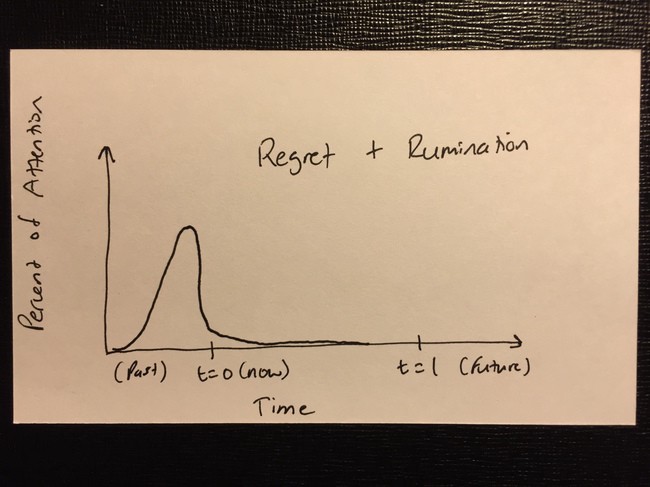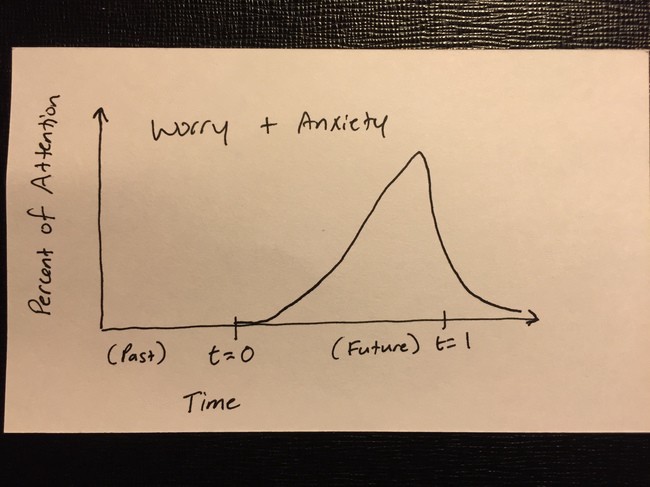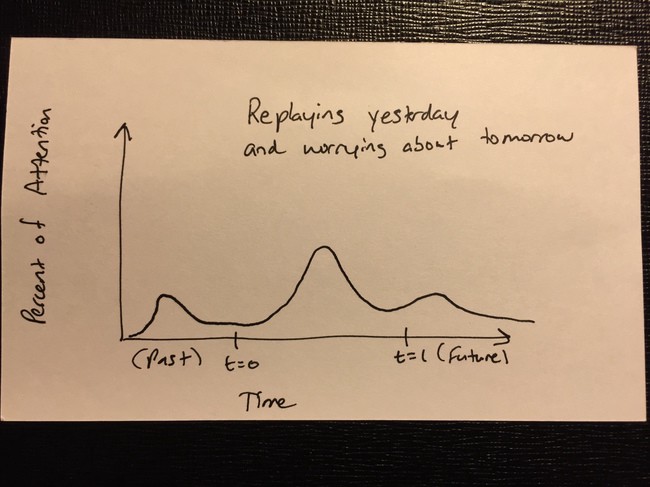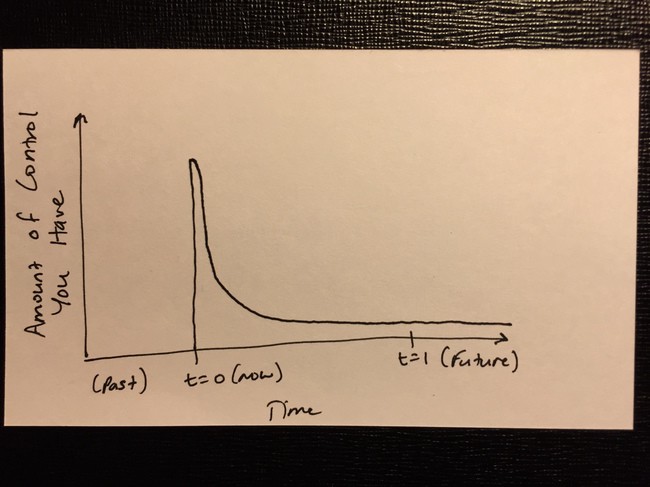The Critical Relationship Between Attention and Control
In this age of abundance, our scarcest resource is our own attention. And like any resource, how we allocate it makes a huge difference in how useful it becomes for us. (That’s even reflected in the language we use to describe that allocation — how we “spend” our time.)
When you allocate too much of your attention to the past, you’re almost certainly stuck in a rut of rumination, blame, regret, and resentment (in the extreme case, this can spiral down into depression).

The other extreme is putting way too much attention in the future, toward worrying about things that haven’t happened yet — and often, things that are incredibly unlikely to happen (the extreme case here is severe anxiety).

Most of us naturally oscillate between the two, flipping back and forth from rehashing that meeting where we wish we’d said something different, and worrying about tonight’s dinner or next week’s presentation.

That scenario is normal and very common (and if you don’t recognize it in yourself, you’ve certainly experienced it with those you live and work with).
Unlike with financial asset allocation, there’s actually a very simple (thought not easy!) way to decide how to allocate your attention — put almost all of it where it has the most impact, which is right now, in the present moment:

There will always be a place for some reflection and review, but when you spend too long in the past, you risk slipping into unhelpful regret and rumination. Achievement and performance also depend on healthy amounts of forward-looking planning and preparation — but those carry the risk of developing into anxiety and worry if you’re not careful.
(You may find it helpful to take a moment to reflect on your day so far, and think about your own attention allocation. Are you worrying a lot about an upcoming event or lingering problem? Is there a challenging conversation or disagreement stuck on instant-replay in your mind?)
